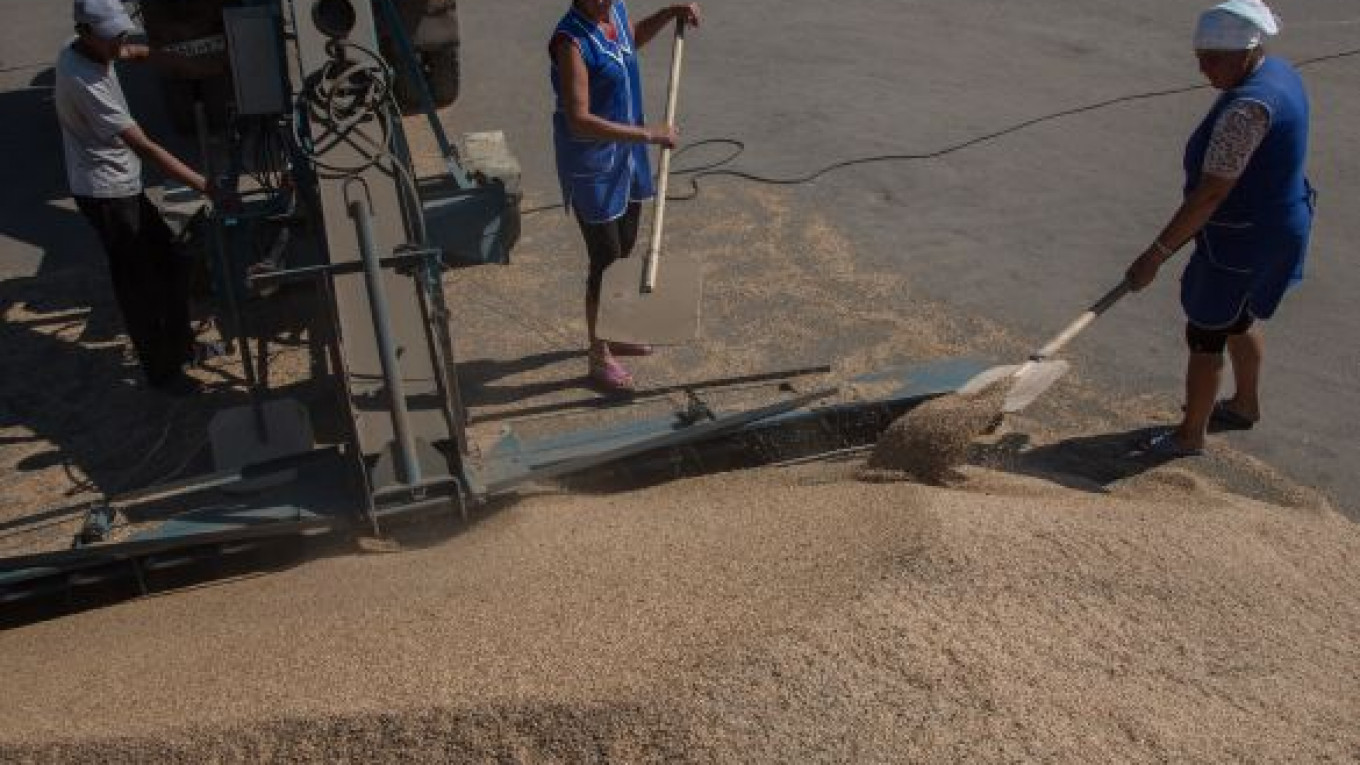LONDON — Russia is back in global wheat markets and undercutting rivals as a weak currency and gloomy price outlook prompt aggressive offers from exporters seeking to offload remaining stocks.
One of the world's top five wheat exporters to regions including North Africa and the Middle East, Russia has become competitive on international markets after a three-month hiatus, muscling back in on the market share of U.S. and French grain.
The country usually ships its main volumes in the first half of the marketing season, from July to December. This season Russian farmers began holding back sales in October/November, in the hope prices would rise.
But a sharp sell-off in the ruble in recent weeks, culminating in the currency hitting its lowest against the dollar since March 2009, has made the country's wheat less expensive for importers who pay in dollars.
This week Russian wheat dominated sales to Egypt in the world's largest wheat importer's latest tender.
"There are two main drivers to the competitiveness of the recent Russian offers; the first is the weakness of the ruble, and the second is the need to recapture demand in their key markets," said Swithun Still, director of Solaris Commodities S.A., a company specialized in trading Russian grain.
"There is a real thrust by certain exporters to ensure they retain the [state and private] business in Egypt."
Russia was helped by a change to the tender specifications used by state buyer the General Authority for Supply Commodities, or GASC. It lowered the wheat moisture limit to 13 percent from 13.5 percent, sidelining French grain, which typically has a relatively high moisture content.
"Russian wheat won the last GASC tender thanks to the weak ruble and Egypt's unexpected decision to cut its moisture limit," Andrei Sizov, the head of the SovEcon firm of agricultural analysts, said.
Russian wheat was harvested during dry weather last year and does not have problems with moisture.
Global wheat prices fell about 20 percent in 2013 due to a rise in global output thanks to favorable weather.
Prices have continued the slide in January, losing a further 8 percent so far this month, prompting some exporters to try and sell excess stock now.
"Those holding stocks believe the market is going to come down further," a European trader said.
At the same time, the weakening ruble has reduced Russian prices in dollar terms versus other available origins, such as U.S. wheat.
"The weakening ruble has allowed [traders] to cut FOB prices in dollar terms by $16 since the start of 2014 and made Russian wheat competitive with other origins," a Moscow-based trader said.
Traders estimate the GASC still has between 800,000 and 1.2 million tons of wheat to buy before the season ends on June 30, while the private sector also has more wheat to purchase.
Russia has between 3 million and 4 million tons of wheat left for export this season. The country exported 12.9 million tons of wheat between July 1 and Jan. 19.
"Russia has a freight advantage and the [Egyptian] millers prefer the quality to soft red wheat, so the U.S. will be kept on the sidelines. There are also logistical issues which will stop [American] soft red wheat prices being very competitive and flooding the Egyptian market," Solaris' Still said, referring to congestion in the U.S. gulf ports.
Egypt has been the second-largest importer of Russian wheat, behind Turkey, so far this season, taking 2.1 million tons of wheat from Russia between July and end-December.
Traders warned however that as there was a limited amount of wheat left in the south of Russia, near its ports, the country's return to the global market was likely to be temporary.
"Russia will stay competitive until April, but then may start to be less competitive as the surplus of exportable wheat stocks diminishes," Still added.
A Message from The Moscow Times:
Dear readers,
We are facing unprecedented challenges. Russia's Prosecutor General's Office has designated The Moscow Times as an "undesirable" organization, criminalizing our work and putting our staff at risk of prosecution. This follows our earlier unjust labeling as a "foreign agent."
These actions are direct attempts to silence independent journalism in Russia. The authorities claim our work "discredits the decisions of the Russian leadership." We see things differently: we strive to provide accurate, unbiased reporting on Russia.
We, the journalists of The Moscow Times, refuse to be silenced. But to continue our work, we need your help.
Your support, no matter how small, makes a world of difference. If you can, please support us monthly starting from just $2. It's quick to set up, and every contribution makes a significant impact.
By supporting The Moscow Times, you're defending open, independent journalism in the face of repression. Thank you for standing with us.
Remind me later.






